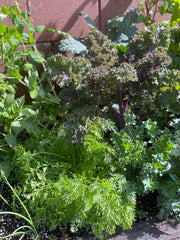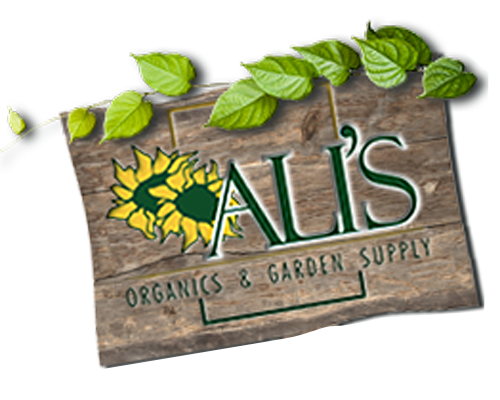Managing Soil Fertility for Vegetables
Posted May 09, 2023

Vegetables must grow quickly and steadily to be of good quality. That requires evenly moist, well drained soil with well-balanced nutrients. Some vegetables are light feeders and some are heavy feeders and both require different actions. The heavy feeders like rich, fertile soil, so they use a bit more fertilizer. The vegetables considered average feeders need less nitrogen but still require lots of organic matter, plus adequate levels of phosphorus and potassium to thrive.
Fortunately, vegetable gardens are the easiest to supply with nutrients and organic matter.
In Fall: Ideally, dig in raw forms of organic matter such as leaves and unfinished compost. This is the ideal time to add rock powders (limestone, rock phosphate), this allows time for the soil microbes to break it all down making it readily available for the plants in the spring.
In Spring: Other nutrients, especially nitrogen and fast-acting types (blood meal, kelp, cottonseed meal), should be added in the spring or shortly before planting. Scratch these into the top few inches of soil. You don't need to dig them in deeply. For many vegetables, especially fast-growing types such as radishes and lettuce, this is enough for the entire season.
Long Season Crops: Summers crops like tomatoes, peppers, eggplants will be in the soil for longer periods of time than some spring crops and the addition of fertilizer will help your plant to be healthy and productive. These crops can be feed every six weeks with an All Purpose 4-6-2 powdered or granular fertilizer and top dressed with compost or mulch. Using a liquid is another way to feed your plants through the summer months. This should be done more often and can be sprayed directly on the foliage for instant uptake of the nutrients. Using a sprayer you can quickly spray plants foliage in a matter of minutes. Use a liquid fertilizer every 10-14 days. Look for a number that is higher in the middle (phosphorus) of the NPK scale, as most summer crops are fruit producing. A good example of this is Liquid Bloom 2-6-4.
Anytime: Compost can be added anytime, left on the surface as a topdressing or mulch. This is a great way to feed microbial life, keep moisture in the soil, suppress weeds and cover organic powdered or granular fertilizers.
Remember, the more you grow in your soil, the more you take away from your soil, so keeping up the nutrients is essential to keep your plants actively growing. Summer months plants grow faster and soil microbial activity is more active, using more nutrients. Colder months, the microbial life slows, plant growth slows and less nutrients are being taken up.



Comments (0 Comments)
There are no comments.
Post Comment